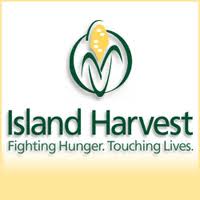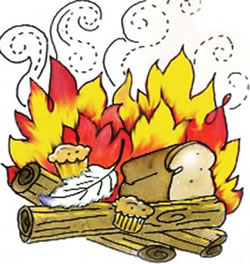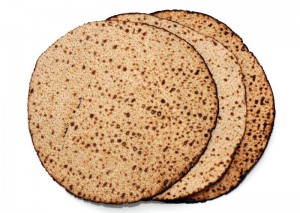Dear friends;
I hope that you’ll enjoy the following Parashiot summary, followed by a Dvar Torah;
” Parashiot in a Nutshell ”
G-d warns against unauthorized entry “into the holy.” Only one person, the Kohen Gadol (“high priest”), may, but once a year, on Yom Kippur, enter the innermost chamber in the Sanctuary to offer the sacred ketoret to G-d.
Another feature of the Day of Atonement service is the casting of lots over two goats to determine which should be offered to G-d and which should be dispatched to carry off the sins of Israel to the wilderness.
The Torah warns against bringing sacrifices anywhere but in the Holy Temple, forbids the consumption of blood, and details the laws prohibiting incest and other deviant sexual relations.
The Parshah of Kedoshim begins with the statement: “You shall be holy, for I, the Lord your G-d, am holy” followed by dozens of mitzvot (commandments) through which the Jew sanctifies him or herself and relates to the holiness of G-d. These include: the prohibition against idolatry, the mitzvah of charity, Shabbat, sexual morality, honesty in business, honor and awe of one’s parents, prohibition against taking revenge and holding a grudge against another Jew; and also the ultimate principle of Torah is mentioned, which is:
— Love your fellow as yourself.
” Dvar Torah ”
Towards the end of Parashat Acharei Mot, the Torah talks about the forbidden relationships. It talks about prohibitions against sexual relationships with someone’s parents, step-parents, children, step-children, siblings, step-siblings, aunts, uncles, and the like. It even talks about the prohibition against marrying two sisters at the same time, since this will create a rivalry between the two sisters who are suppose to love each other, rather than to hate one another!
Towards the end of all these prohibitions, the Torah also condemns male homosexuality. It says the following for a man: ” Do not lie with a man as you would with a woman. It is an abomination.”
Although the Torah clearly condemns the act of homosexuality, but in today’s modern day society this prohibition is widely challenged.
The people who are pro homosexuality come up with some strong and valid arguments.
In favor of the homosexual, they say that he cannot control his sexual preference. They even bring in “genetics” to explain his preference. They continue their argument by saying that sexual preference is subjective. It is inappropriate to label heterosexual behavior as proper and homosexual behavior as a perversion. Two people study a single piece of art. The beauty of the work inspires one. The other observer finds the work boring and mediocre. Is one correct and the other mistaken? Of course not! Each is entitled to his or her individual opinion. Why should the issue of sexual preference be treated differently? How can heterosexuality be regarded as more proper than homosexual preferences?
Well, how does our Torah answer these questions? How do our Chachamim comment on this issue? Since homosexuality is a very sensitive subject, many of the Chachamim try to avoid talking about it and I couldn’t find much commentaries on this topic. But still some of the medieval commentators such as Rambam, Ramban and Ibn Ezra do reveal their opinion.
Despite all of the modern notions about homosexuality, the Torah considers it unnatural, and therefore is an abomination. It is forbidden without exception!! Something which is a disgusting act in the eyes of Hashem, should be a disgusting act in our eyes too. All the Chachamim agree that the Torah clearly condemns the act and there is no way around it. But the question that still bothers me is how do the Chachamim explain the genetic issue?? What if a person is really genetically attracted to other men?? What if it’s not his fault and he was born like that? What if he really isn’t attracted to women at all?
Although most of the Chachamim disagree that homosexuality is a genetic or a medical issue, but for the argument’s sake,, let’s assume that it is true. Accordingly, our sages gave the following explanation for the genetic issue problem: They say that the answer to this dilemma lies in the Pasuk (verse) itself. The Torah says that “you shall not lie with another man”……… It doesnot say you should not desire another man!! The Torah is telling us that even if you desire another man, you should have control over your desires!! Just because you desire something, doesn’t necessarily mean that you have to have it!! For the same reason that if you really desire to be with a married woman but you need to have control over your desire since the Torah forbids it, so too, to be with another man, you also need to control yourself since it’s what Hashem demands from you. Hashem never gives us a commandment that is impossible to keep! Since it is written in the Torah in Parashat Nitzavim; ” The commandments that I give you today — it is not distance from you and not far from you. It is not in the heaven, nor across the sea…. Rather, it is very close to you; in your mouth and in your heart to perform it.” Yes, for some people it might be easier to keep a mitzvah, and for some it might be more difficult, but it’s never impossible!!
But the argument doesn’t end here. The homosexual person might say: ” But I’m really not attracted to women?! To me, that is a disgusting act!!” How do we answer this question now?
Well, when I was a kid, I had a friend who would never eat beef, chicken or fish. He would not even come close to them. He claimed that it made him feel nauseous. So every day and every night his Mom had to make him a separate dairy dish for lunch and for dinner. Until one day she was fed up, and she said to herself: ” I had enough! No more of this nonsense!!”. So from that day on she made sure to only make beef, chicken or fish for lunch and dinner everyday. The boy did not eat anything for a few days, but the Mom continued with her stubbornness. He cried, he moaned and he complained, but it was to no use. Until one day, he came to realize that for sure there is not going to be any food other than beef, chicken or fish any more, so he started to eat some of the dinner that the Mom prepared. At the beginning, he did feel nauseous, and he did threw up, but the Mom did not give up. Everyday he ate a little bit more and more and he felt less and less nauseous until eventually he began to like eating meat!
Same idea goes with sexual relationships. If a person knows for sure that there is no alternative than sleeping with the opposite sex, then eventually he is going to like it. Only when there is a choice that he can compare, only then he can show preference towards the forbidden relationship. Some people can only drink soda and not plain water. But if there is no soda ever, do you think that they are not going to drink water?
Yes my friends, Judaism is all about having control over our desires. Hashem wants us to overcome our desires and to be in full control. And this is what separates us from the other nations and makes us the unique nation of G-d; His “Chosen People”! Hashem wants us to have control over what we eat, what we say, what we see, what we hear, and above all, to have control over our sexual desires. All these prohibitions in the Torah is for our own good and is for making us stronger people. Being free to do whatever you want, is not freedom; it means that you are not in control; your desires are controlling you!!
So my friends, remember that Hashem never gives us a commandment which is impossible to keep. It might be challenging, but it’s never impossible!
Shabbat Shalom, Chag Sameyach & Regards;
Martin







You must be logged in to post a comment.